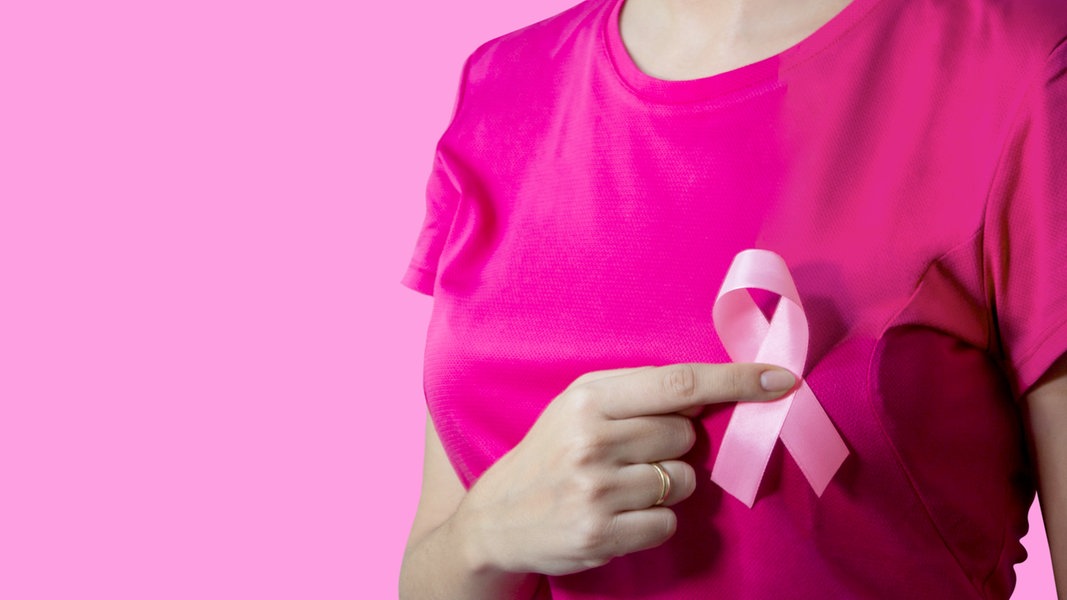As of: March 11, 2024 12:37 p.m
The diagnosis was a shock, the treatment was extremely stressful for the body and soul: for many breast cancer patients, everything is not immediately fine after completing therapy. This makes breast cancer follow-up care all the more important.
Although they have completed the most strenuous stages, the medical measures – surgery and radiation, but especially chemotherapy – affect the entire metabolism of some breast cancer patients. There is also often a fear of a relapse. That’s why good aftercare after breast cancer treatment is incredibly important.
Chemotherapy has a lasting effect on metabolism
It is not uncommon for people to feel weak and tired months after chemo. Which treatment consequences occur for those affected depends on the individual therapy plan. The side effects of some chemotherapy treatments are severe. The administered cytostatics (“cell stoppers”) not only inhibit the proliferation of tumor cells, they generally prevent normal cell division. The faster cells multiply, the greater their effectiveness – since cancer cells usually divide very quickly, cytostatics work well against them. However, the drugs can also affect other body tissues with high division rates: for example the blood-forming cells of the bone marrow, the mucous membranes of the gastrointestinal tract or the hair root cells.
Possible chemotherapy side effects include nausea, diarrhea and hair loss, but also inflammation of the mucous membranes, anemia, severe exhaustion and tiredness (fatigue) and a general increased susceptibility to infections. Hormone therapy in particular has side effects such as hot flashes or bone pain, which sometimes persist for a long time.
Breast cancer follow-up care: Have any symptoms clarified by a doctor
One reason for ongoing side effects such as fatigue and pain can be the weakened immune system and nutritional status of the body’s cells caused by the cytostatics. However, metastases should also be taken into account; the suspicion may need to be clarified through medical examinations. Bone metastases can be ruled out using imaging techniques (bone scintigraphy). Blood tests provide information about tumor markers as well as the regeneration status of the detoxifying organs (liver and kidney values), ongoing anemia or a deficiency in the supply of vital substances (vitamins, trace elements).
The so-called phase angle shows the nutritional status and energy status of the cells. The doctor measures it using a so-called bioelectrical impedance analysis (BIA): This is an electrical measurement of body composition based on the different conductivity of bones, organs, muscles, body fluids and body fat. Doctors can use it to assess the metabolic performance of the body’s cells. People with good nutrition and exercise status have a phase angle of 5 or more. After chemotherapy it is often significantly lower.
Resilience after breast cancer: Gain strength with the right diet
Nutrition cannot replace traditional medicine, especially in the field of cancer medicine. However, nutritional medical support serves as an “adjuvant” strategy, that is, as an aid to strengthen the body. The diet should be rich in nutrients, with good fats and moderate carbohydrates: too many carbohydrates are unfavorable because they promote chronic inflammatory processes and can make you tired. Instead, the body needs antioxidants and other plant substances; they support metabolism and strengthen the immune system. An appropriately tailored nutritional plan provides energy.
Obesity increases the risk of recurrence after breast cancer
Obesity is considered a risk factor for the development of certain types of cancer, including breast cancer. Even after treatment, weight can play a decisive role: Compared to normal weight, obesity increases the risk of breast cancer recurrence by 89 percent within five years. Changing your diet can make an important contribution to getting fit and staying healthy after breast cancer treatment.
Be careful with painkillers
Painkillers can suppress symptoms after chemo, but do not eliminate the causes. In addition, the constant use of so-called non-steroidal anti-inflammatory drugs (NSAIDs) such as ibuprofen is dangerous: their side effects include bleeding from the mucous membranes; continuous use can lead to kidney failure, stroke or heart attack.
Exercise is good
Not to forget: Regular daily exercise promotes blood circulation and boosts metabolism! A walk in nature is particularly good for the soul and strengthens the immune system at the same time: forest bathing has been proven to have positive effects on health. As your strength grows, you will be able to further expand your radius of action. A pedometer can document progress and have a motivating effect.
Further information
The aftercare menu should contain many vital substances and anti-inflammatory ingredients. more
To download: Information about a diet rich in vital substances and strengthening. Download (87 KB)
Light, Mediterranean-inspired dishes with lots of antioxidants provide energy and plenty of vital nutrients. more
This topic in the program:
The Nutrition Docs | Mar 11, 2024 | 9:00 p.m
